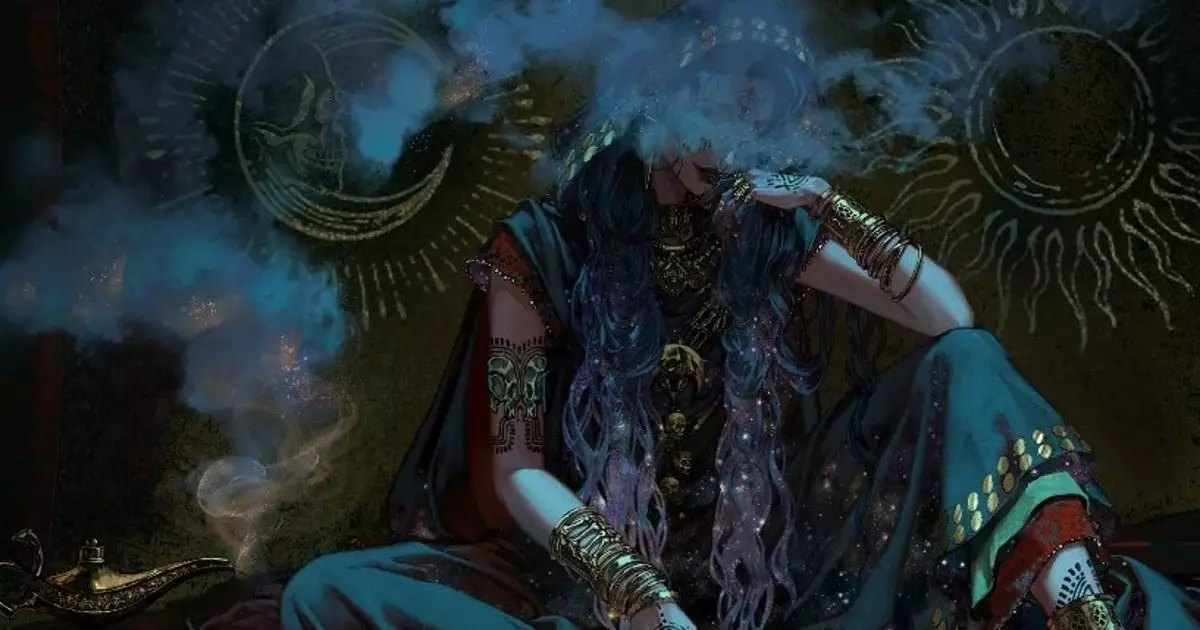Sultan’s Game has emerged as an intriguing player in the strategy gaming arena, an unexpected hybrid that combines elements reminiscent of resource management and narrative exploration. While my acquaintance with its gameplay is still in its infancy, this enthralling title warrants attention for its ambitious design and the myriad of experiences it offers. With a stylized aesthetic that evokes a combination of opulent and grotesque imagery, alongside gameplay steeped in moral ambiguity, Sultan’s Game is both charmingly perplexing and surprisingly immersive.
One cannot discuss Sultan’s Game without paying due regard to its artistic elements. The graphics evoke a distinctive atmosphere that feels like a love letter to Western and Eastern fables alike, merging the frantic color palette of titles like Hades with the captivating vibrance of tales from 1001 Nights. Each visual element serves not just as decoration but as an integral part of the storytelling; the art employs vibrant colors and intricate designs that lure players into the game world with a false sense of safety before tearing apart their preconceptions about strategy games.
Adding another layer to the sensory experience is the soundtrack, which exquisitely complements the visuals and enhances the game’s overall mood. The music ebbs and flows, perfectly syncopated with the tumultuous nature of the narrative, effortlessly transporting players into the chaotic realm of the Sultan and their courts. The audio-visual synergy is palpable and creates a deeply immersive atmosphere that keeps players engaged and invested in the unfolding drama.
At its core, Sultan’s Game is not merely about strategy; it intricately weaves moral dilemmas into its gameplay mechanics. The player assumes the role of a new character under the Sultan’s oppressive influence, tasked with resolving various cards that represent actions or events to avoid a grisly fate. The complexity of this task lies in the intertwining of resource management, character manipulation, and the necessity to navigate darker themes of betrayal and murder. Players must employ various tactics to fulfill their objectives, engaging in a delicate balancing act between gaining power and retaining moral integrity—if such a concept even exists within the corrupt confines of the Sultan’s realm.
Each card, representing an action like “bloodshed” or “carnality,” necessitates a calculated approach where players must decide not just how to execute the action but also which characters to involve and what repercussions might follow. This design brilliantly echoes the themes found in wider narratives around tyranny and governance, akin to the resource constraints and ethical dilemmas one encounters in city-building or survival games. Yet, Sultan’s Game distinguishes itself by forcing players to grapple with the emotional weight of their decisions, effectively making their actions resonate beyond mere statistics.
Character Interaction: The Heart of the Game
The characters in Sultan’s Game are more than mere resources; they form the emotional crux of the experience. Each courtier represents not just a potential pawn to be sacrificed for the Sultan’s whims but a complex individual with unique traits and personalities. As players engage with these characters, they witness how their choices impact relationships and power dynamics. In doing so, they cultivate a sense of investment that goes beyond winning or losing, pushing players to reflect on the nature of their decisions.
For instance, players can choose to manipulate alliances by gifting items or engaging in various social interactions, like convincing those around them to act favorably. However, this comes with the constant threat of betrayal from both mortals and supernatural elements alike. The intertwining of personal ambitions with survival instincts adds depth to the gameplay, leading players to care about their courtiers and their outcomes, even as they recognize the unforgiving nature of the game’s world.
Despite its initial allure, Sultan’s Game is not without imperfections. The potential for overwhelming complexity and occasional translation mishaps could deter some players. The game’s narrative threads can feel tangled, requiring dedicated patience to grasp fully. However, it is precisely this enigmatic quality that imbues Sultan’s Game with a sense of wonder and excitement. There’s a palpable thrill in uncovering each layer and deciphering the myriad of mechanics at play.
While Sultan’s Game may pose a challenge and present ethical quandaries, it is within that very chaos that its allure lies. Players are invited into a world that feels dark yet vibrant, cruel yet captivating. There is an exhilarating uncertainty about the depths of the experience, promising hours of exploration and discovery. Ultimately, Sultan’s Game is a testament to the potential for innovation in the strategy genre, beckoning those willing to delve deep into its complexities.


Leave a Reply